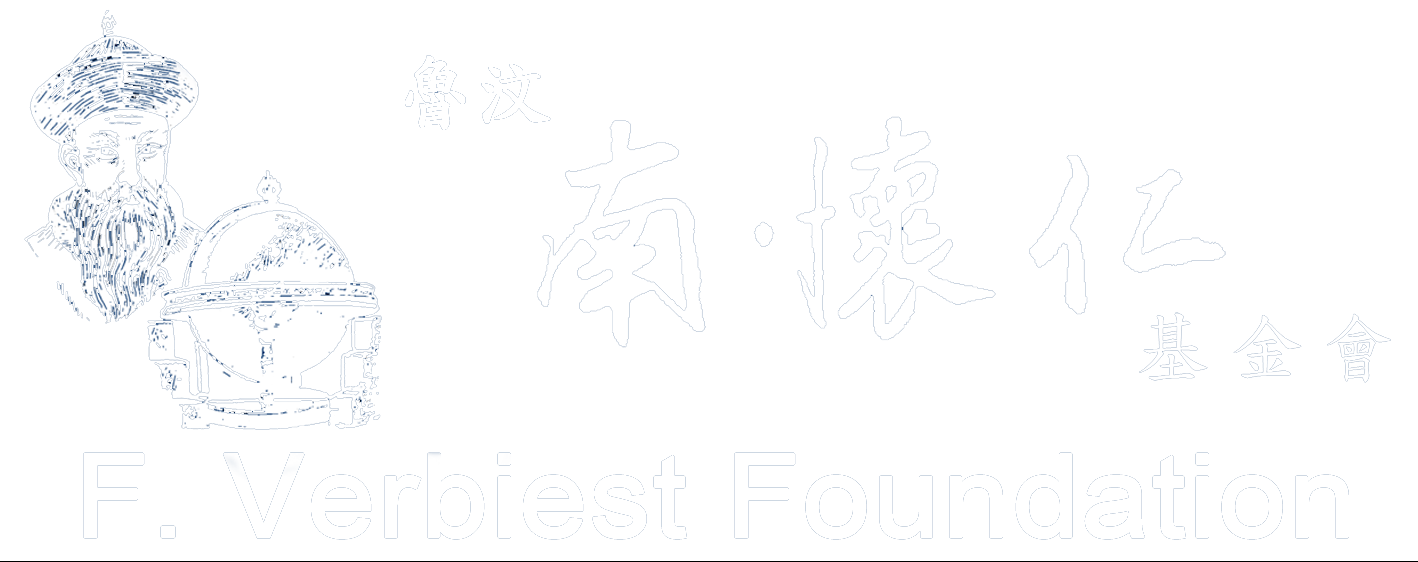"I have seen a new heaven and a new earth" (Rev. 21:1)

The first stage of the workshop was facilitated by Fr. Otfried Chan (secretary-general of the Secretariat of the Catholic Bishops' Conference in Taiwan) with a overarching presentation of the whole encyclical, using as theme "I have seen a new heaven and a new earth" (Rev. 21:1). Fr. Chan mentioned the great importance of the encyclical "Fratelli Tutti" just looking at its size: eight chapters and 287 paragraphs. This encyclical is an official document with a high degree of authority regarding church teaching. It discusses issues related to social justice and peace, which are of utmost importance for today's humanity. The issues related to the US retreat from Afghanistan and the humanitarian crisis it has provoked has been met with indifference by many around the globe. As people are getting farther and farther away from God, they too lose the mutual connection coming from God's love. We must respond to Pope Francis's call, find the wall in our heart, and try to turn that wall into a passage, so that as society we can "care more", and the words and example set by Pope Francis' "Fratelli Tutti" can be realized.
"Fratelli Tutti" is the title used at the beginning of an admonition (ammonizione) written by Saint Francis to the friars who regularly hold councils at the Portiuncula church in Assisi, exhorting them to imitate Christ. From Saint Francis' admonition, we can see that the "Fratelli [brothers]" in the title of the encyclical "Fratelli Tutti " refers to a common God and Father, whose Son, Jesus Christ, is the Savior of mankind. In other words, from its very beginning, "Fratelli Tutti" is a church document based on the Christian faith; It looks at the world from the perspective of the Christian faith. Therefore, those who read the encyclical should be like the brothers who hear the exhortation of Saint Francis —the brothers of Saint Francis— are expected to act under the urge of the Holy Spirit, and act like Jesus Christ taking up their cross bravely, unafraid to entrust themselves and sacrifice their own interests for the Lord. Therefore, although the content of "Fratelli Tutti" has a strong political flavor, it is not a political agenda, nor can it be read as a declaration of human rights; "Fratelli Tutti" is both an appeal to people to repent and a prophetic promise.
The way to find the solution to the problem is to read the word of God
"Fratelli Tutti" is the title used at the beginning of an admonition (ammonizione) written by Saint Francis to the friars who regularly hold councils at the Portiuncula church in Assisi, exhorting them to imitate Christ. From Saint Francis' admonition, we can see that the "Fratelli [brothers]" in the title of the encyclical "Fratelli Tutti " refers to a common God and Father, whose Son, Jesus Christ, is the Savior of mankind. In other words, from its very beginning, "Fratelli Tutti" is a church document based on the Christian faith; It looks at the world from the perspective of the Christian faith. Therefore, those who read the encyclical should be like the brothers who hear the exhortation of Saint Francis —the brothers of Saint Francis— are expected to act under the urge of the Holy Spirit, and act like Jesus Christ taking up their cross bravely, unafraid to entrust themselves and sacrifice their own interests for the Lord. Therefore, although the content of "Fratelli Tutti" has a strong political flavor, it is not a political agenda, nor can it be read as a declaration of human rights; "Fratelli Tutti" is both an appeal to people to repent and a prophetic promise.
The way to find the solution to the problem is to read the word of God

Throughout his presentation Fr. Chan explained in detail the contents of each chapter of the encyclical, which can be roughly divided into four parts: analysis of reality, answers from the Bible, collective repentance, and collective action. The first chapter of the encyclical is titled "Dark Clouds over a Closed World"; this is the first time that a document from Pope Francis starts directly pointing out problems in a rather heavy tone: the elderly are abandoned and live lonely, unscrupulous language violence causes mutual harm, and technological advancements hinder concentrating on listening to the voice of others. The Pope points out all kinds of problems with the aim of helping people to find solutions to those problems, and the way is to go back to the Word of God. In the second chapter, "A Stranger on the Road", the Pope uses the parable of the Samaritan in Luke's Gospel as an example of problem-solving discernment. Father Chan hopes that all participants will have the opportunity to discuss and answer this question frankly: "What kind of suffering people are there in "Fratelli Tutti" that I have never cared about? Why? Do I want to reflect and repent or not?".

In the third and fourth chapters, "Envisaging and Engendering an Open World" and "A Heart Open to the Whole World", the encyclical proposes basic principles for solving modern human problems. The Pope invites us to abandon "individualism", and hopes that everyone will work together to appreciate each other, affirming that everyone -including the poor, immigrants, indigenous people, the elderly and the youth- could definitely contribute to create a united and open world. In Chapter 5, "A Better Kind of Politics", the Pope believes that the current political approach should be reformed: all national governments must devote themselves to truth and love, and strive to seek the interests of the people, while rich countries must use political power to help poor countries. End the different kinds of slavery still present, and restore and protect the dignity of everyone.
We are brothers and sisters who walk together in life
The Pope understands that social problems cannot all be left to the national governments to solve. Therefore, in Chapter 6 "Dialogue and Friendship in Society", he reminds everyone of what they should and can do: "Genuine social encounter calls for a dialogue that engages the culture shared by the majority of the population" ("Fratelli Tutti", No. 219). In Chapter 7 "Paths of Renewed Encounter", the Pope says: If it is really our goal to be brothers and sisters with other people, we must open our hearts and earnestly put the teachings of Jesus into practice, love the neighbor as ourselves, and also love our enemies. It also means repairing past broken relationships and forgiving those who have offended us. In the last chapter, "Religion at the Service of Fraternity in Our World", the Pope directs readers' thoughts to the light of Christian faith, explaining that true brotherhood, as a prerequisite, must be transformed in Christ: through baptism, we become members of the body of Christ, as well as brothers and sisters who walk together in the journey of life. The Holy Spirit is the love of God, and only He can transform us from our hearts: the humbler we are, the easier it is for the Holy Spirit to find his way into us, completely transform our motivations for loving others and the way we love others, so that a new heaven and a new earth come to the world from everyone's heart.
We are brothers and sisters who walk together in life
The Pope understands that social problems cannot all be left to the national governments to solve. Therefore, in Chapter 6 "Dialogue and Friendship in Society", he reminds everyone of what they should and can do: "Genuine social encounter calls for a dialogue that engages the culture shared by the majority of the population" ("Fratelli Tutti", No. 219). In Chapter 7 "Paths of Renewed Encounter", the Pope says: If it is really our goal to be brothers and sisters with other people, we must open our hearts and earnestly put the teachings of Jesus into practice, love the neighbor as ourselves, and also love our enemies. It also means repairing past broken relationships and forgiving those who have offended us. In the last chapter, "Religion at the Service of Fraternity in Our World", the Pope directs readers' thoughts to the light of Christian faith, explaining that true brotherhood, as a prerequisite, must be transformed in Christ: through baptism, we become members of the body of Christ, as well as brothers and sisters who walk together in the journey of life. The Holy Spirit is the love of God, and only He can transform us from our hearts: the humbler we are, the easier it is for the Holy Spirit to find his way into us, completely transform our motivations for loving others and the way we love others, so that a new heaven and a new earth come to the world from everyone's heart.
Ten Principles of Catholic Social Doctrine
Q&A:
Q: In the fifth chapter of the encyclical "Fratelli Tutti", "Good Strategies for Governing the Country", how can the government's actions bring the society to the beautiful state mentioned in the encyclical, and what is the conflict between neoliberalism and National Socialism?
A: Father Chan responded starting with the ten principles of Catholic Social Doctrine, especially "dignity of the human person", "common good" and "solidarity", and by scrutinizing and relating the current social realities with the Catholic faith, pointing to the differences in the content of social training, and putting forward comprehensive and holistic suggestions.
To know more about the content of Fr. Otfried Chan's presentation, you can access the full session through the following links (in Chinese):
Verbiest Foundation website
"Voice of Catholicism" YouTube channel
"Kuangchi group” YouTube channel


